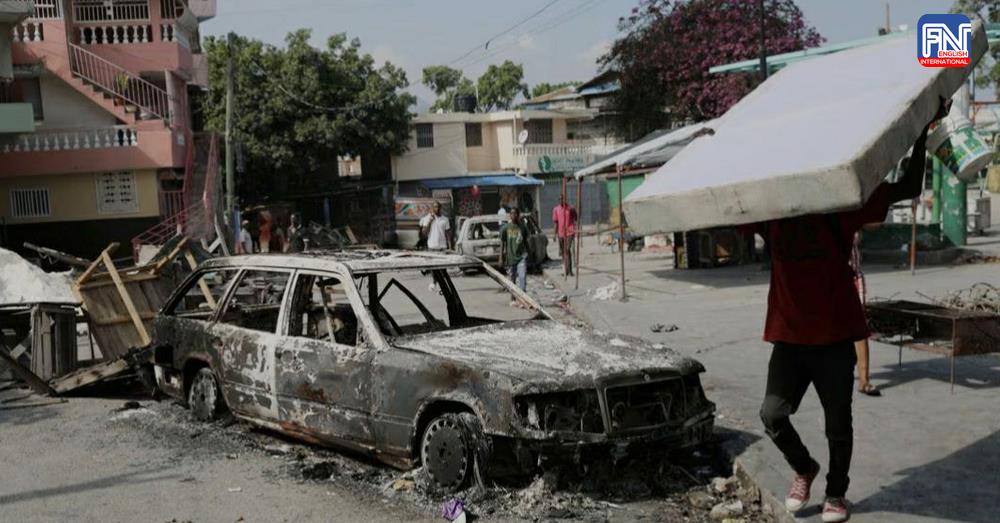PORT-AU-PRINCE, Mar. 8 (Reuters) - Nearly 3,000 pregnant women in Haiti's capital, Port-au-Prince, risk being cut off from essential healthcare if the current gang war-driven paralysis of the city continues, the United Nations said on Friday.
Haiti's government extended a state of emergency on Thursday amid mass lootings and attacks on police stations. Armed gangs are calling for the overthrow of the government of Prime Minister Ariel Henry, who is in Puerto Rico, apparently unable to return to the country and struggling to rally international support.
The U.N.'s Integrated Office in Haiti (BINUH) said if the situation continues some 450 women out of those 3,000 are at risk of potentially fatal obstetric complications, while more than 500 sexual violence survivors could be left without medical care by late March.
"Sexual violence against women and girls is used as a weapon of war, intimidation, territorial control and domination," BINUH said in a statement, adding that partner organizations working to prevent gender violence in camps for internally displaced people had cut or halted most services for safety reasons.
There are widespread reports of gangs carrying out mass rapes in the country as they expand their control. Many victims do not report the attacks for fear of retaliation and support is largely left to cash-strapped local associations.
Abortion in Haiti remains illegal, and hospitals have warned of staff, bed and blood shortages while many aid organizations have suspended services due to the violence.
BINUH chief Maria Isabel Salvador said it was "imperative" to promote the participation of women in leadership across Haiti including at the political levels.
The comments come as the U.S. pushes Henry to "expedite" a long-awaited political transition and as regional leaders meet with representatives from Haiti's government and opposition, though they have still not reached consensus on how to move forward.
In neighboring Dominican Republic, U.N. experts have warned of pregnant or post-partum Haitians being allegedly arrested during medical check-ups and deported. Infants born there to Haitian parents do not receive Dominican citizenship.





